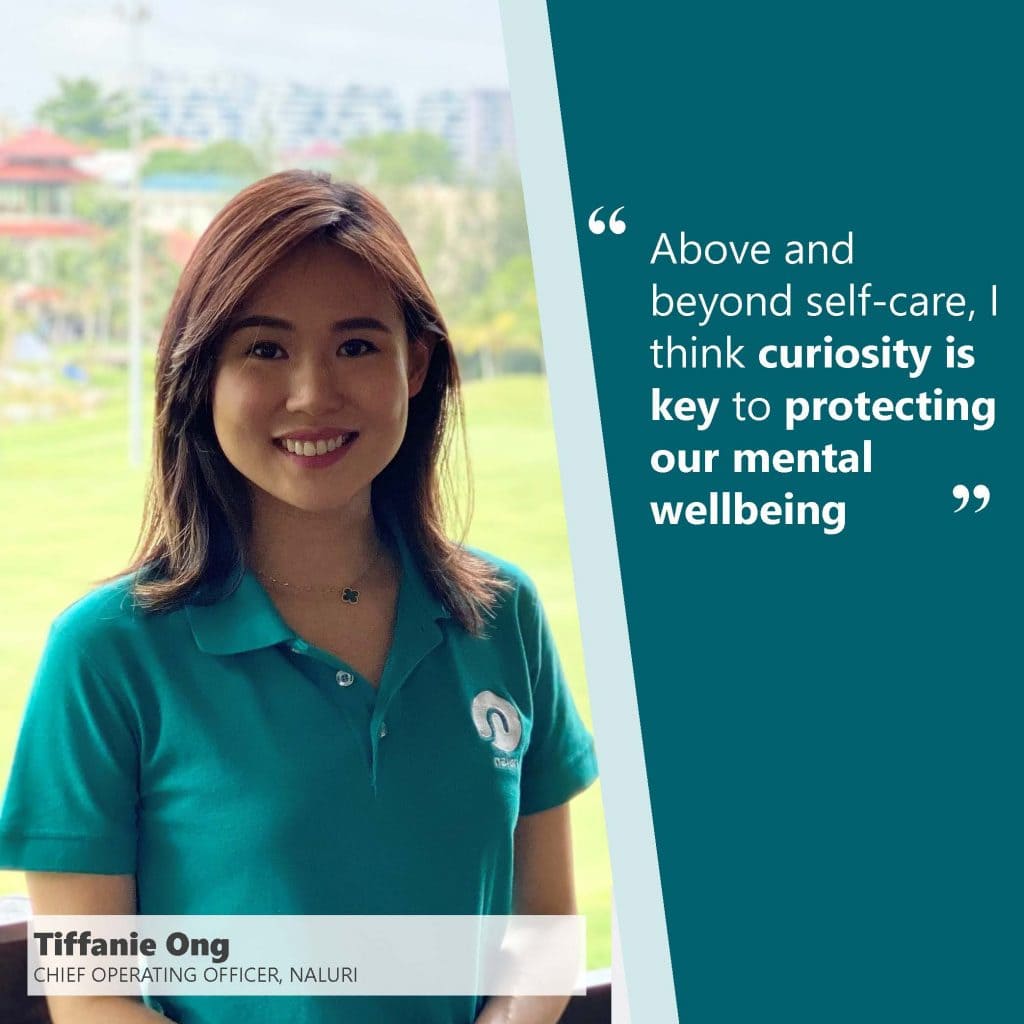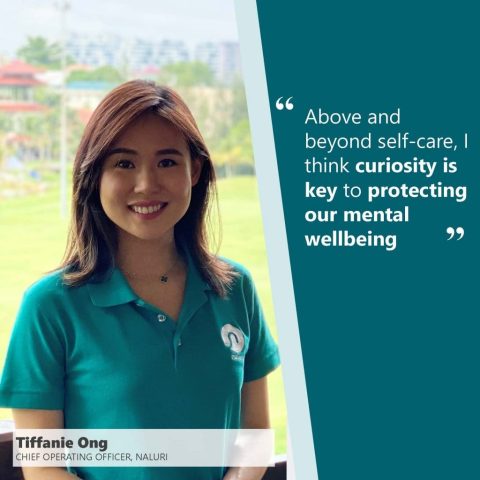
Jirnexu inked deals with more than five digital banking consortia
21 July, 2021
Kar Mun Leong on #WinWithWomen – on what it takes to be a product manager in tech
4 August, 2021
Dr Tiffanie Ong on #WinWithWomen – Managing mental health and career in the new normal
28 July, 2021
In this Wednesday’s feature on #WinWithWomen, we switch the conversation to mental health. We speak to Dr. Tiffanie Ong who is the Chief Operating Officer at Naluri, a digital healthcare start-up that combines support for physical and mental health to address multiple chronic health conditions and delivers quantifiable health outcomes. Tiffanie shares her thoughts on the biggest challenges for the next generation of women leaders and how one can manage their mental health and career in the new normal.
Hi Tiffanie, thanks for speaking to us today. Could you share with our readers your career journey so far?
I started out as a teaching assistant and specialised in the research of Behavioural Science and Social Cognition at University College London. After I left academia, I pursued a career in management consulting, which adopts a similar hypothesis-driven approach to problem solving to gain exposure to real world business issues and pain points.
I am currently the Chief Operating Officer at Naluri, where I am responsible for the delivery of Naluri’s digital health coaching capability. My day-to-day includes the development of coaching frameworks, programmes, and the continuous enhancement of our AI-augmented digital coaching platform. My background in academia, where I worked on theoretical knowledge in psychology and behaviour science, coupled with my practical experience in delivering large-scale transformation projects from strategy to operations, has allowed me to adapt to a fast-paced environment that is ever changing.
Why did you choose to pursue a career in health technology and why did you choose to work at Naluri?
As a start, I was drawn to cognitive science because of its experimental and data-driven approach towards understanding human behaviour at scale. This approach enables detailed insights, not just on and what we do currently and why we do it, but also what we are likely to do in the future, under specific circumstances. Similarly, health technology allows for a predictive, data-driven, and iterative approach which is exciting because it opens up the possibility of optimising the current state and providing timely intervention.
I joined Naluri because its values align closely with my own personal core values – an appreciation of the interconnectedness between physical health and mental health, a shift towards a model of care that is not symptom-based, and a continuous improvement of care delivery through quantitative and qualitative data.
Could you share your experience as a female leader in a health technology company? What advice would you have for women aspiring for leadership roles?
I consider myself fortunate to be a female leader in a health technology company centred on mental health. Specifically, because I am a firm believer that for us to be leaders in the digital mental health space, empathy needs to be at the core of the decisions we make in the company; and empathy is a trait that we typically see in female leaders.
For women aspiring to attain leadership roles, you need to understand that even as we make great strides towards gender equality – especially in terms of learning opportunities and equal representation at the workplace, there will still be situations where you may feel that you are a minority. In such situations, your voice cannot be heard unless you speak up. As the saying goes, “the only impossible journey is the one you never begin”. Do not underestimate the importance of emotional intelligence! In my experience, as we progress along the ranks, the decisions that are required become increasingly less clear-cut and in many of these situations, it is often not logic that wins the argument!
What do you think will be the biggest challenge for the next generation of female leaders?
I think we are in a unique time where a woman’s role, be it at the workplace or at home, is actively being redefined. While this is necessary for any lasting or systematic change, it also means that there is huge variability in the paths that different women take. In other words, there is no homogeneity in what it takes for a woman to be successful. While it is certainly an exciting time to be a female leader, there are certain pitfalls we want to avoid. In my view, to avoid such pitfalls, we need our next generation of female leaders to be more resolute and driven in defining and more importantly, persevering through their chosen paths amidst the adversity they will undoubtedly face.
___________
“We need our next generation of female leaders to be more resolute and driven in defining and more importantly, persevering through their chosen paths.”
___________
Research on Covid-19 work-from-home arrangements have shown that women are more likely to report being stressed at work and at home. What advice do you have for women in such positions?
Even in equal chore households, research has shown that during the Covid-19 pandemic, women have been more overwhelmed than men. One of the reasons for this is the mental load from planning, which women tend to do more often than men. A supportive environment is not granted but instead needs to be intentionally built. The first step for that is to build up the courage for open and transparent communication with the people we interact with on a daily basis. Our co-workers, supervisors, or partners are not mind readers and if we do not communicate, they will not be able to support us in the way we need them to. Women need to start unlearning the patriarchal advice that society has passed down through generations that women should not speak our minds.
With the increased attention around mental health, do you have any advice on how companies should approach this conversation in the workplace?
The first step is for companies to normalise the conversation about mental health in the workplace. In addition to initiatives such as webinars, trainings, and offering mental health support to employees, leaders also have a crucial role to play in ensuring that they lead by example. For instance, leaders should be encouraged to create a safe space for employees to open up about their mental health.
Another important aspect that companies need to appreciate is that in the same way the Covid-19 virus have resulted in widely varying effects on a person’s physical health, the pandemic’s impact on a person’s mental health is determined by a myriad of different factors, ranging from an individual’s level of resilience to such individual’s access to social or financial support. Therefore, it is important not to expect a one-size-fits-all solution to be sufficient in supporting the entire workforce’s wellbeing.
What are some ways in which people can prioritise their mental health?
Above and beyond self-care, I think curiosity is key to protecting our mental wellbeing. A sense of achievement from learning or accomplishing something we are curious about ensures that we continue to make progress, however small, and not get stuck with simply going through the day-to-day motions. Over time, if we do not continue to find aspects in our lives that we are curious about, it could lead to a feeling of stagnation, which in turn leads to a feeling of a lack of purpose in what we do. Our search and desire for meaning and purpose is not new. In fact, there is a growing body of research that shows that a strong sense of purpose is highly linked to improved mental health, cognitive function, and physical health, due to healthier lifestyle and behaviour choices being made.
___________
“Above and beyond self-care, I think curiosity is key to protecting our mental wellbeing.”
___________
Lastly, who or what inspires you?
I am currently inspired by this book I’m reading titled “Survival of the Friendliest” by Brian Hare and Vanessa Woods. The premise is that the notion of “survival of the fittest” does not mean survival of the biggest or the strongest but rather, the survival of those who know how to collaborate and communicate. This book serves as an important reminder to me that I do not lead to dominate, but rather to foster and build a team where we are collectively greater than the sum of our parts and we can achieve far more together than we would have achieved individually.

